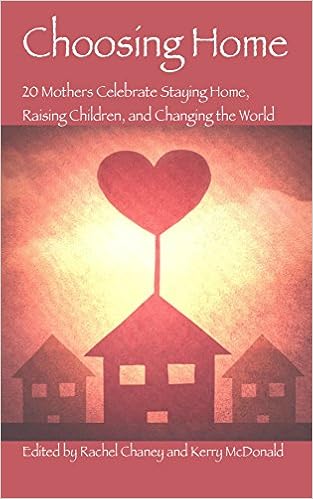Instead of complaining about the education status quo, build alternatives to challenge it. That is just what pioneering educators and entrepreneurs are doing across the country. Disillusioned by increasingly restrictive, test-driven, one-size-fits-all mass schooling that crushes creativity and originality, individuals and organizations are clearing a new pathway of learning that is non-coercive and self-directed. Earlier this month, I highlighted Ingenuity Hub, a new self-directed learning center founded by a public school teacher who was fed up with forced schooling and decided to create an alternative to school.
Today, I am delighted to share with you the story of JP Green School, a self-directed learning center for homeschoolers/unschoolers in the Jamaica Plain neighborhood of Boston that combines a passion for sustainability, a deep desire to preserve and protect the natural world, and a focus on non-coercive, self-directed learning. Here, co-founder Andrée Zaleska, a climate activist and educator, shares her story of launching and growing JP Green School.
If you have a story of creating an alternative to school focused on non-coercive, self-directed education, please share it! I can be reached at kmcdonald@post.harvard.edu.
****
1. What is the JP Green School and why did you decide to create this innovative education space?
JP Green School is a small alternative "free school"--a space for self-directed learning. We focus on teaching the mindset of sustainability and respect for the living world. We offer experiences involving gardening, cooking, green building, basic science, and free play in an urban environment. While we do some science "lessons," most of the day consists of free exploration.
2. Tell us a bit about the space, location, and your offerings. What is it like to be a learner there and what programs are you offering this fall?
We are based in my home and garden -- a place called JP Green House created as a demonstration home for sustainable living. The house is "energy positive," meaning it creates more energy than it uses through both active and passive solar technologies. The large garden is densely planted with vegetables and native flowers. We have a beehive, and we'll be starting up a chicken coop next year. A large play structure with a climbing wall, hammocks, a slack line and crow's nest sits in the yard, next to the concrete patio where we do most of our lessons. We have a funky indoor classroom featuring a loft and a firepole, books, games and art supplies.
We have 8 kids in each class, ages 5-10. There is a teacher and one teen assistant per class. We also have a part-time certified teacher who develops science curriculum and teaches the more formal lessons.
We have 8 kids in each class, ages 5-10. There is a teacher and one teen assistant per class. We also have a part-time certified teacher who develops science curriculum and teaches the more formal lessons.
Last year, our first year of programming, we started with 2 students! The number doubled several times, and this year we began with 24, in four classes. There are two classes for homeschoolers each week, and 2 for after-school students. We expect to attain our goal of 4 days/week programming for homeschoolers by fall of 2018.
3. You have a strong commitment to environmental stewardship and sustainability. Where did your passion for this come from and how does the JP Green School integrate these themes?
JP Green School is the synthesis of two different passions on the part of its founders. Kannan Thiruvengadam and myself (Andrée Zaleska) met in the climate movement. We have worked for years as activists and educators to call attention to the grave threat of climate change. As we worked in this mindset of opposition--fighting the fossil fuel corporations and the forces of denial in our culture--we both felt a need to also model the potential beauty of a sustainable future in which humans live in harmony with the living Earth.
Both JP Green House and JP Green School are attempts to do just this.
Additionally, I was leaning decidedly towards a belief in totally non-coercive schooling while raising two sons (now 16 and 19). After much exploration and observation of different schools, I have seen happy schools and schools that feel Orwellian. Non-coercion and emphasis on community appear to be key factors in all the successful models. (I credit much of my thinking on these matters to years of conversations with my son Kuba, who has been to 5 different schools, studied others, and has developed clear opinions about successful educational models.)
JP Green School aligns philosophically with local learning centers such as Parts and Crafts, Macomber Center and North Star. We also take inspiration from Montessori and Waldorf, unschooling, and forest schooling.
Additionally, I was leaning decidedly towards a belief in totally non-coercive schooling while raising two sons (now 16 and 19). After much exploration and observation of different schools, I have seen happy schools and schools that feel Orwellian. Non-coercion and emphasis on community appear to be key factors in all the successful models. (I credit much of my thinking on these matters to years of conversations with my son Kuba, who has been to 5 different schools, studied others, and has developed clear opinions about successful educational models.)
JP Green School aligns philosophically with local learning centers such as Parts and Crafts, Macomber Center and North Star. We also take inspiration from Montessori and Waldorf, unschooling, and forest schooling.
It is the devotion to modeling human beings in healthy relationship with the natural world and each other, that makes JP Green School both a happy place, and a powerful experiment in the times we live in.
4. How do you see JP Green School fitting into the larger alternatives to school movement in general and to Self-Directed Education in particular? Why do you think these alternatives to school are important now?
People educated in coercive models will be damaged for life (most of us are). The lack of respect shown to their autonomous selves as children translates into a lifelong tendency to "get what they need" by any means necessary. Much of what we think we need are acquisitions and achievements -- hollow substitutes for love and belonging. In most cases what we demand in substitute for love is robbed from the natural world. A community of people, plants, and animals is what human beings long for at their core.
Our little experiment returns children to those primal relationships, in a quirky house and garden in the middle of urban Boston. We are part of a growing counterculture which finds traditional schooling damaging in ways that are intertwined with the general brokenness of our culture.
5. How can interested families connect with you?
Interested families should go to our website jpgreenschool.org, contact us at jpgreenschool@gmail.com for a visit and tour of the school, or call Andrée directly at 617 512 3502.
Like Boston, our school is diverse. LGBTQ families, many ethnicities, religions and races, and diverse economic backgrounds, are all represented here. We welcome all families and make our best effort to make our programs accessible financially to all.
Like Boston, our school is diverse. LGBTQ families, many ethnicities, religions and races, and diverse economic backgrounds, are all represented here. We welcome all families and make our best effort to make our programs accessible financially to all.
























No comments:
Post a Comment
Note: Only a member of this blog may post a comment.